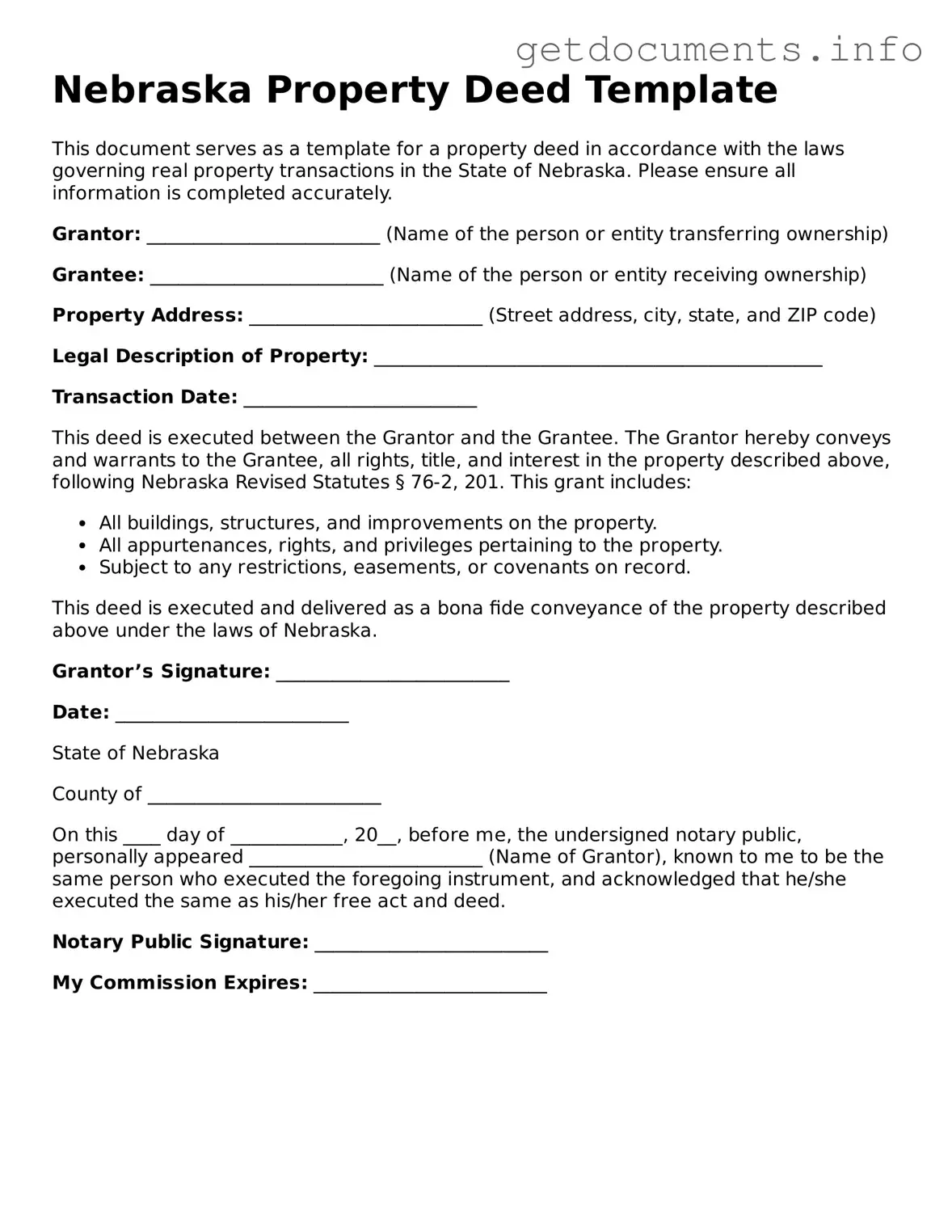Free Deed Template for Nebraska
A Nebraska Deed form is a legal document used to transfer ownership of real property from one party to another. This form ensures that the transfer is recorded and recognized by the state, providing clarity and security for both the buyer and seller. To proceed with your property transaction, fill out the Nebraska Deed form by clicking the button below.
Access Deed Editor

Free Deed Template for Nebraska
Access Deed Editor
Got places to be? Complete the form fast
Fill out Deed online and avoid printing or scanning.
Access Deed Editor
or
⇩ PDF File
